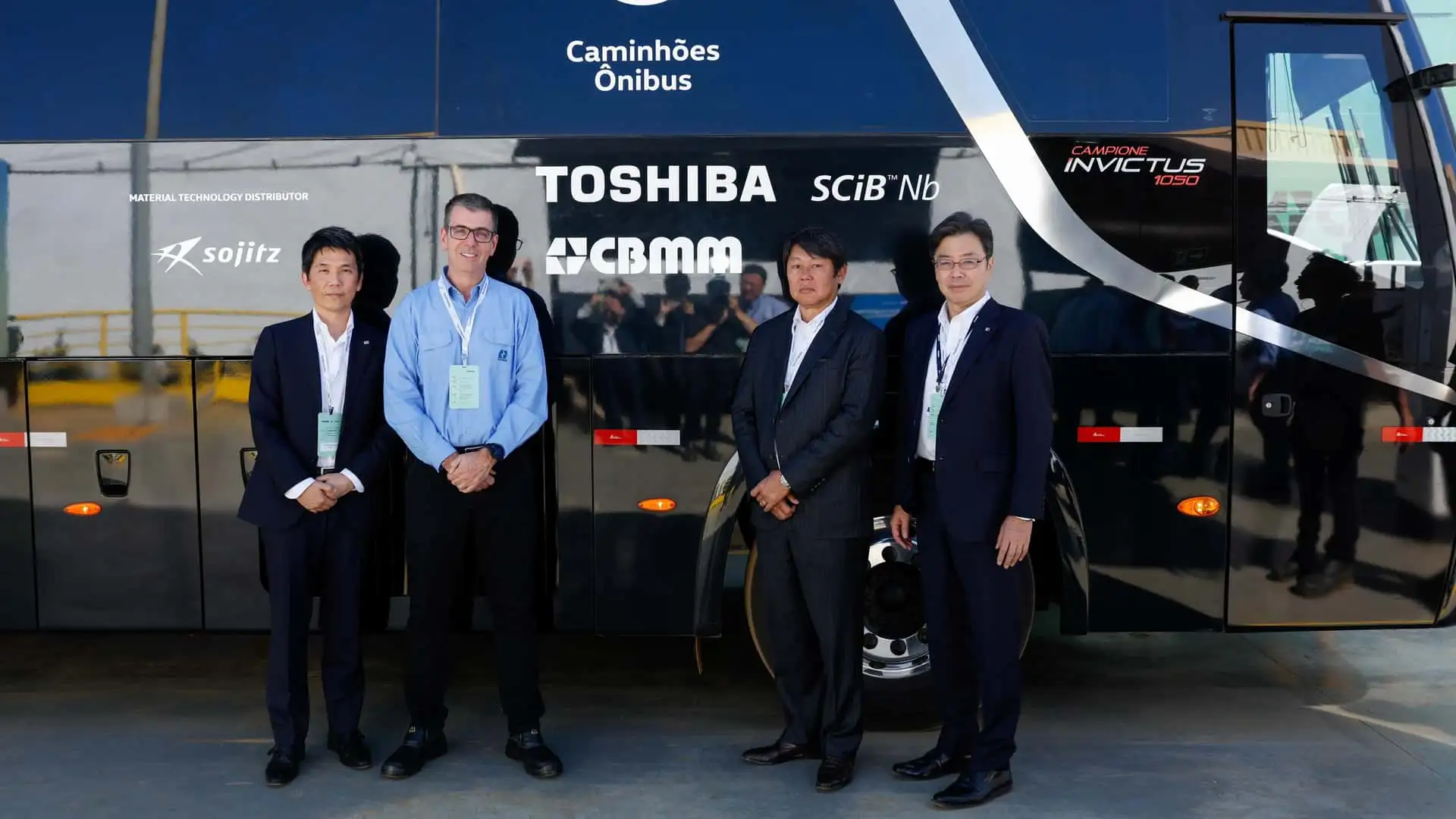Toshiba Corporation, together with Sojitz Corporation of Japan and Brazil’s CBMM, the world’s leading producer of niobium, unveiled in Brazil a prototype electric bus with Toshiba’s next-generation SCiB batteries.
The new SCiB Nb cells, which are equipped with niobium titanium oxide (NTO) in the anode, are promised to offer significantly higher energy density than the existing SCiB cells with lithium titanium oxide (LTO) anode.
Toshiba’s SCiB batteries’ main advantages are their ultra-fast charging capability (in just 10 minutes), extreme longevity, and ability to work in a wide range of temperatures. However, the energy density of these low-voltage lithium-ion cells (2.3-volt nominal) was quite weak, at up to over 200 Wh/l (a few times lower than in many electric cars).
The new SCiB Nb cells maintain SCiB’s strong sides while increasing the energy density by some 50% to 350 Wh/l (307 Wh/l including tab and sealing area). That’s still not enough to compete with the high-energy-dense lithium-ion chemistries in all-electric cars, but it will be a step forward for electric buses, which often use SCiB batteries.
In the past, Toshiba’s cells were tested in electric cars like the Mitsubishi i-MIEV and Honda Fit EV. Still, the buses and industrial vehicles appear to be a much better application. That’s because the cells can operate in temperatures from -22 to 140°F to (from -30 to +60℃), last 10,000 cycles with over 80% original capacity, and recharge in just 10 minutes up to 80%.
This is why the three companies tested the batteries in a prototype electric bus developed by Volkswagen Truck & Bus in Brazil. The vehicle will be demonstrated at CBMM’s industrial plant in Araxá, Brazil.
The market launch of the SCiB Nb battery cells is expected in Spring 2025. It’s difficult to say how good this new family of cells can become. Still, at least theoretically, the new anode material should offer roughly three times higher theoretical volume capacity than the older LTO type, Toshiba explains.
Toshiba SCiB Nb 50 Ah cell specs:
- niobium titanium oxide (NTO) in the anode
- Rated capacity: 50 Ah
- Nominal voltage: 2.3 V
- Output power: 1000 W (SOC 50%, 10s, 25 ℃)
(This value is calculated from the internal resistance.) - Input power: 2000 W (SOC 50%, 10s, 25 ℃)
(This value is calculated from the internal resistance.) - Volumetric energy density: 350 Wh/L
(307 Wh/L including tab and sealing area) - Weight energy density: 130 Wh/kg
- Dimensions: 98 x 280 x 12 mm
(102 x 310 x 12 mm including tab and sealing area) - Weight: Approx. 860 g
- Rapid charge performance 5C charge (10min., SOC 80%)
- Operating temperature -30 ~ +60 ℃
- Over 80% recovery capacity after 10,000 cycles

